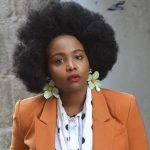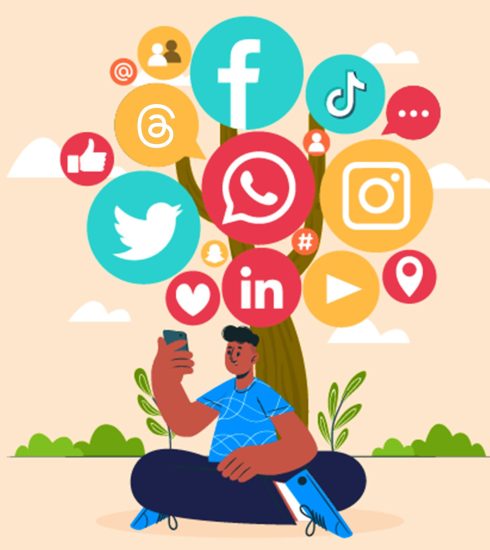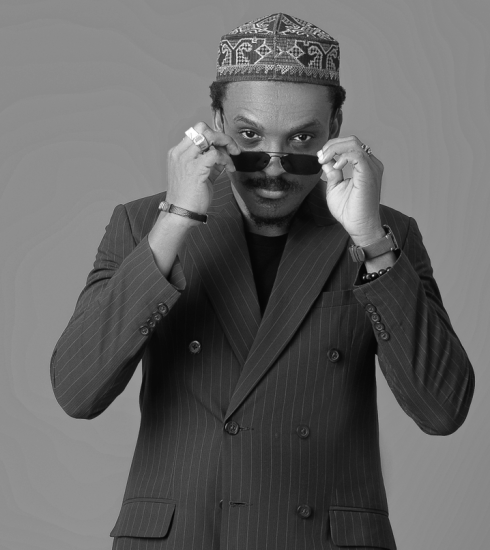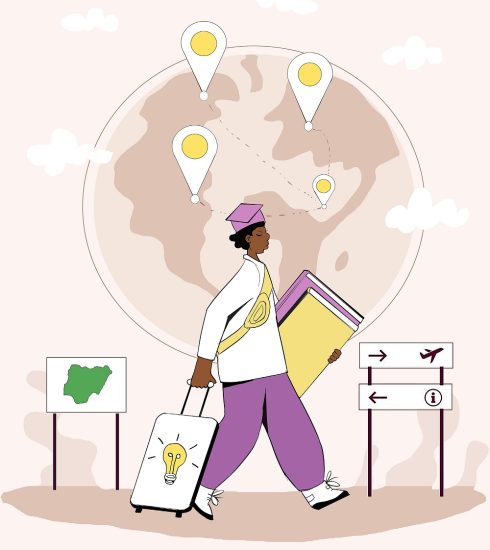Idia Aisien Will Not Stop Telling Impactful African Stories
Impact; while some are measurable in realtime, others take a bit longer to influence a much larger group, generations. The power of the media to shape narratives that will, in turn, inform us of our society, culture and how we live our lives, or in some cases, ought to, cannot be overstated. Whether it is reporting the story on the news, sensitising people of happenings within their environment, or telling it in films, acting out different scripts that put a creative spin on some real-life experiences, the media plays the most crucial role in impacting society. Across both sectors, only a few people than Idia Aisien understand just how important perspectives and narrations are with Africa as a continent involved.
Having earned her B.A. in Journalism from American University in Washington, D.C., and an M.S. in International Public Relations and Global Corporate Communications from New York University, Idia’s plan of someday influencing the community around her and the continent at large took a systemic step-by-step manifestation that saw her go from working in a private equity firm in the United States to becoming a strong voice in the media industry in Nigeria, working with international news TV station, Arise. Idia, who would eventually delve into acting, talked to DOWNTOWN’s Senior Writer, Kehindé Fagbule, about challenging relocation, her moment of epiphany meeting fellow journalist-turned-moviemagnate, Mo Abudu, the latest upcoming film she featured in, Twin Flame, and raising funding for her NGO, International Development Initiative in Africa, to tell more impactful African stories through docuseries.
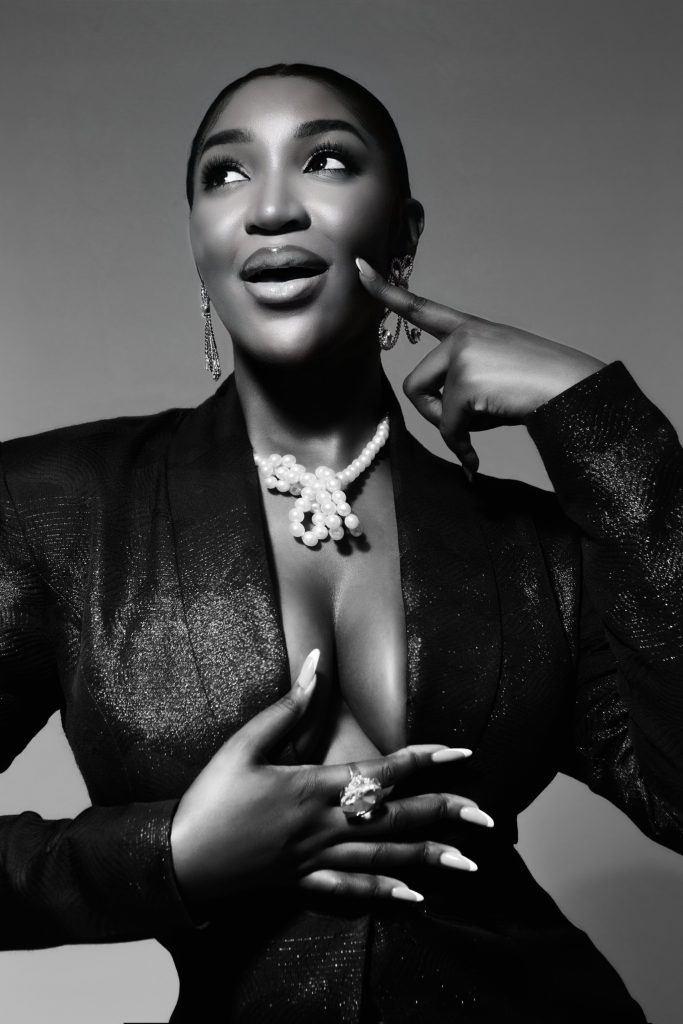
We know you started as a journalist initially. How did you get introduced to acting?
I went to meet Aunty Mo (Abudu), and there was an audition for a movie role going on. I told them I wasn’t there for the audition, but they said the only way I could see Mo Abudu was to audition for the role. I wasn’t thinking too much about it. I am very good at memorising, so I was just going to pop in and do the lines. I walked in, and as I was reciting the lines, I started crying. It was an emotional scene and was for a show at the time. Aunty Mo was like, “My darling, you’d be a fantastic actress,” and I corrected her that I was there to audition to be a newscaster and that I’ll be on CNN one day. She was just staring at me and said, “You look like a very good actress; you won’t make the kind of money you think you’re going to make as a newscaster. And we went at it. I was still going back and forth, and I hadn’t really moved to Nigeria fully, so I didn’t pursue the role. When my father passed, I really didn’t know who I was, and I got a call one day that they were auditioning across Nigeria; they were looking for something, couldn’t find certain roles, and the gist was everywhere. What is this audition? My team told me about it, suggesting I go for it. I was wondering why my manager was telling me about a movie and just chuckled like I’m not an actor. I was like, oh my God, these people auditioned. I don’t want to do this. Anyway, I went for the audition, and then they told me I was going to come back for a second edition. I was like, who are these people? I’m not going to do this film. I was chosen for the movie, and everything just happened. It was Nneka The Pretty Serpent. Coming back to the circle, Aunty Mo sent me a message that she had watched the movie.
She wrote, “Darling, I am so proud of you absolutely.” At that moment, my heart just stopped. That was when I remembered that audition that had happened five years before. It just happened; it was never anything I thought was possible. I love movies, and I’ve always been very passionate about how stories are told, but I just thought you had to be born an actress; I didn’t think it was possible for me.
Have you gone to an acting school since then?
Absolutely! I have an acting coach. First of all, for the first movie I did, I had a coach for singing, acting, dancing and fighting every day for about three months. I still had the coach with me when I did the movie for another three months. Since then, I just thought this was something I really liked, and if I brushed up and really put the work into it, maybe I could do better. So up until now, I still have an acting coach. Part of the reason why I have been so excited about going back and forth is because I work with two acting coaches in Los Angeles and London.
Let’s talk about life in the United States. You grew up here and went there for education and came back to Nigeria. You once mentioned in an interview that you regretted that decision. What was that period like for you?
Basically, the regret was how I moved to Nigeria. Many people don’t know that at the time, I was living in America and had a very stable life, a great job, and a great apartment. I wasn’t necessarily close to my family because, obviously, they were in Nigeria and the UK, but my future was very well planned. Then I came to Nigeria when two of my sisters were getting married, and I met somebody, fell in love, and thought I was going to get married. So I talked to my company for them to include me on a project they were doing in Nigeria, it was a private equity firm, and they were investing in banks across Africa. So they started a project at the time in Union Bank, and my supervisory boss invited me and I was like “Yeah.” I was supposed to be in Nigeria for three weeks, and now I’ve been here for seven and a half years. I left everything, my comfort, life and job, even though I was able to save a lot on accommodation thanks to my dad, a lot of people don’t get that kind of headstart. After that relationship didn’t work out, I just kind of felt like my life took so many twists and turns and did some little things that were very unnecessary. The interview (with Mo Abudu) happened around the time that my dad died, so I realised that he wouldn’t get to see me fully blossom in my career, and he was one of my biggest cheerleaders, like when he would see me on TV and watch my shows. At the time, I just felt like—I don’t want to say regret—what am I doing, where am I going? That was why.
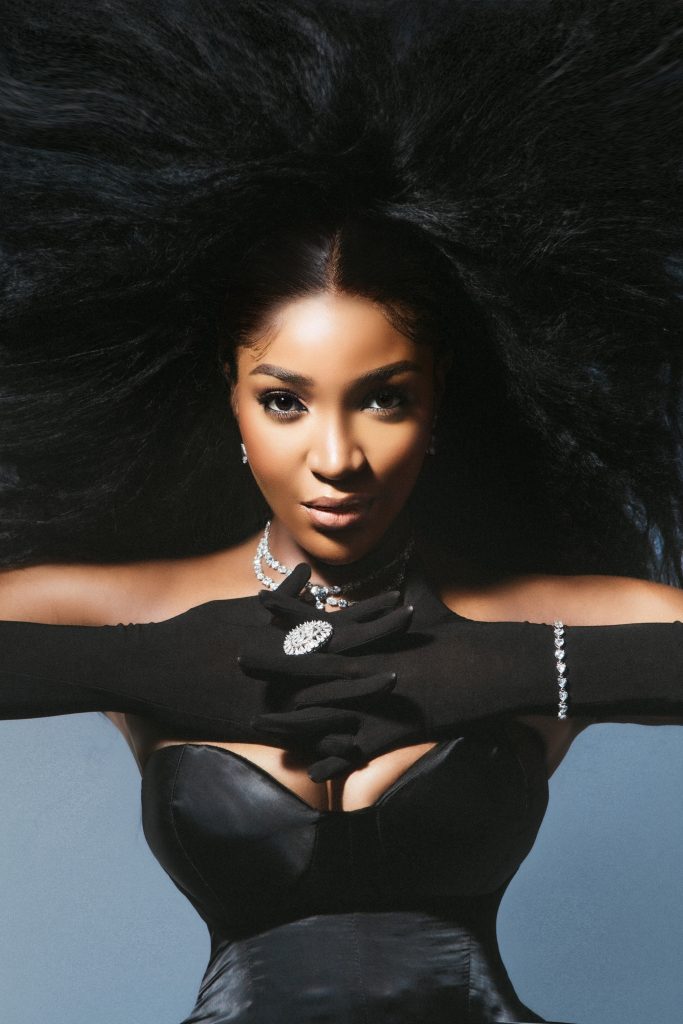
You are having a good run so far acting, but how did you go from working in a private equity firm to journalism?
Basically, I was working for the United Nations, they have an office called the PeaceBuilding Commission, and they focus on countries coming out of conflict. When I was working there, what I noticed was that different leaders of different countries come and we have these different meetings. We were supposed to have an event, I wouldn’t say it was a small event, but it required an amount that I trusted would’ve been easy for the UN to disburse, and those deals just took so long to implement. So when I got an opportunity to work for this firm doing the same research role I had at the UN— research on the viable areas of investment and so on, I jumped at it.
Although the companies differ, most of the things I had always done were alike and around African stories like how do we move Africa forward, whether it’s through finance or media. How can we change the perspectives of people in Africa?
It was never really about whether it’s journalism or this or that, the media is one of the biggest aggregators for change that influences how people think. I realise that the reason I jumped on that firm was because they were invested in Africa, had money and were willing to spend.
The UN had seen it all before when they would disburse funds, and the countries wouldn’t spend it on the right things and then come back again.
So they were sort of jaded, and this was why we weren’t even getting the funding we needed because they have seen money mismanaged so many times, so they are not interested in that. I noticed that when I was working with the private equity firm, there was this company that had money and didn’t necessarily care about the philanthropy aspect, but they wanted to see how people raise funds. So they just put the money into different people and platforms and just sprouted up the industry, and I was very interested in that. However, after a while on the job, I remember just being sad most of the time because I was like, “Is this what I’m really supposed to be doing?” But I’ve learned a lot from them in terms of being able to get funding for international development platforms and things like that, so nothing was amiss, but it was definitely not my path.
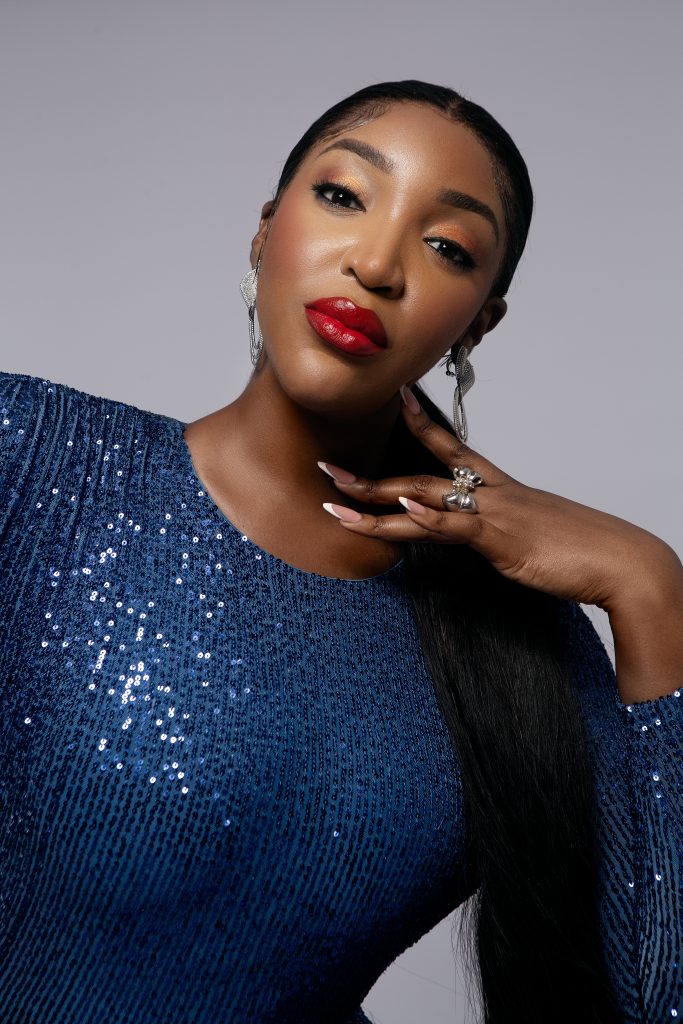
Let’s talk about your movie career…
I did Nneka The Pretty Serpent and Bad Boys and Bridesmaids, and the one that’s on the way is called Twin Flame. But other than that, I have four movies I cannot wait for Nigerians to see; Sons of Wrath, Life and Death,The Reunion and of course, Twin Flame. We also have a Netflix special that I came back to Nigeria to start filming a fortnight ago.
Which of these movies would you say was difficult for you to get into character?
The strongest character I’ve played is in Twin Flame because the girl is just so different from me. If I were born this person, maybe a lot of things that happened to me in my life wouldn’t have happened. She is strong, opinionated, and stands up for herself, but you know, on the flip side, she’s a bit much. I remember when I finished filming, my acting coach told me I had to drop the character, that I was still acting as her (the character). It was very hard for me to drop her. Obviously, Nneka was very difficult because there was the evil, fighting, singing, and dancing, I could not dance to save my life so they literally taught me how to dance and practically everything. So Nneka was pretty tough, and even after filming, I found it hard to drop her as well and come back to Idia because for that movie, I had to meditate on Anaconda, so it was different.
In acting, what would you say is mostly missing in Nigeria? What is the one thing Nigerian actors, including yourself, can do better at?
I think the main thing that is missing comes from us, the production and the viewers is giving Nigeria a chance. There’s this thing that is still happening, and it is one of the things that compelled me to say I actually do want to be an actress. This thing where people just be like “I don’t watch Nollywood films,” I want to be the reason that people say, “No, there are good Nigerian films, have you seen this girl?” And I feel that some of us have always known this from the days of Ijele with Genevieve, the old Blood Sisters, Diamond Ring, Domitila, Karichika.
I think there is still a majority of Nigerians that still think abroad is better, and it happens in our industry where we think foreign is better. So if there’s a white director, it’s better. We need to give ourselves, as Nigerians, the chance. Like when Nneka was released, and people said the old one was better. I would always reply, “I know you don’t remember, but the old Nneka changed into a cat instead of a snake, so I know you don’t know what you’re saying when you say the old one is better, you just want to be critical and don’t want to give Nigeria a chance.”
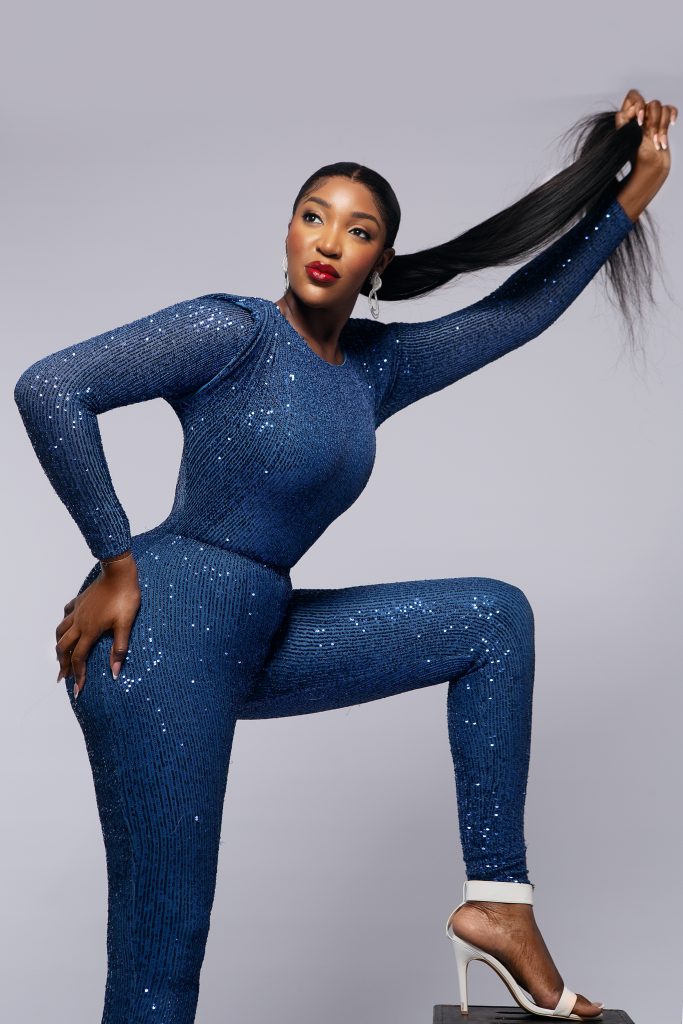
How do you handle those criticisms because there were many of them?
Now it’s way better for me because I’ve just realised that in Nigeria, we are very negative, especially on social media. When we see something, we like or enjoy, we mostly acknowledge it in our minds and just scroll past it. But when it is something, we don’t like, we are compelled to comment. I see that trend. When you complain about something, maybe the actor, director, or costume, people are more likely to leave a comment. The ones that actually want to give credible criticism or insights are in your DMs rather than on your pages fighting for you.
For me, I think the fact that the first year, I gave the most I could. I couldn’t have done better than that because that was all I knew; that was all I had available with me at that time. If there were any issues, it wasn’t my acting, so if it was because I was dark-skinned or wasn’t evil, or as sexy as the first Nneka as many people said, it was not my fault, I gave the best I could according to the script I was given. The criticisms were a handful, but shout-outs to the platforms that support us such as Netflix, Prime and so on, have really helped our filmmakers and even actors because when people were bashing me that the film was terrible, half of the people saying that hadn’t watched it. Netflix posted a photo of me and put a crown on my head, and captioned it, “in love with Idia Aisien,” so that Nigerians would know that their comments were not doing anything. I felt like somebody stood up for me and was so grateful.
From your difficult relocation to the troll criticisms on your big screen debut, what has kept you sane through this entire rollercoaster experience?
I remember I had a conversation once with somebody who is quite successful in media, and she said, “Idia, you need to be on airplane mode. Everything that people have to say is not your business. When you are successful, eventually, they will jump on board. People don’t have to be on your journey or in your team from the beginning, but when it’s going well, they will have no choice but to clap for you.” And I see that with many people.
Where are you with journalism nowadays? Do you still work for Arise TV? Would you say that you made the right decision now that you are acting more or do you still have the thirst for journalism to one day work for the likes of CNN and the BBC?
No, I no longer work for Arise. I had a goal and felt like everything I was doing, I was climbing up to the kind of stories I wanted to tell, which were like African stories, progress being made around the continent. A part of me still really desperately wants to tell this story, and I will. But the reason why I can pursue acting now is because I believe in the parable of talent. I think that God has given all of us at least more than one thing that we are good at, and it is our responsibility to harness the different things we’re good at to create impact, and yeah, acting was one of those things. But I don’t know it to be my only thing in life; I still love art. I can paint and draw. I love telling stories, and I love writing. There are so many things I want to do, but I think I am so excited just to find out that there are these other things that I can do, so why not get to the top there as well?
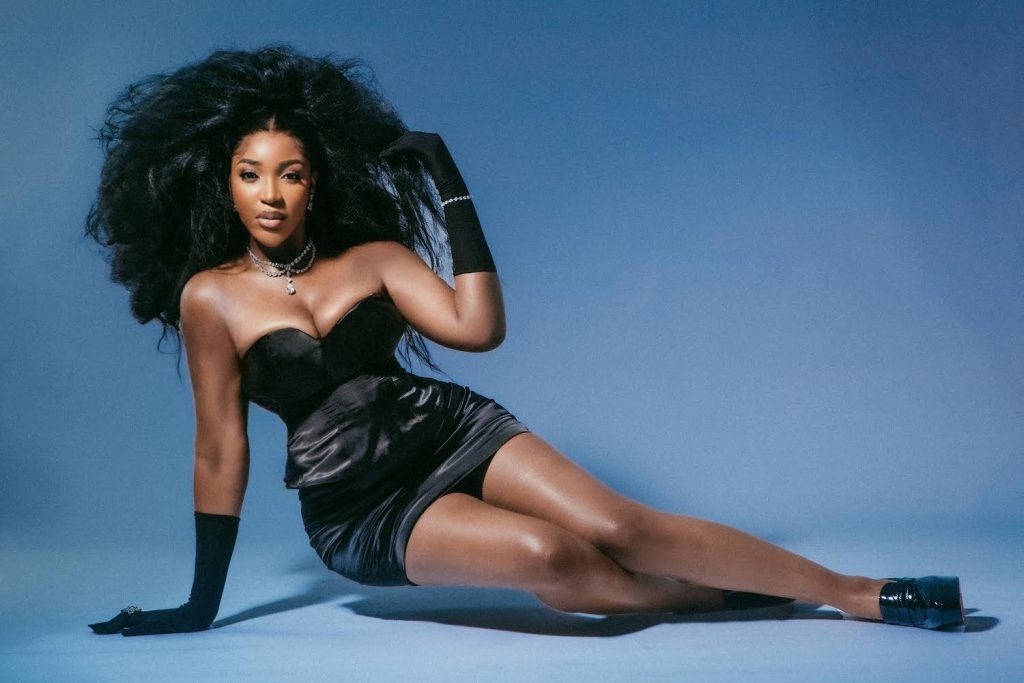
Speaking of making an impact, we know you started an NGO. Tell us all about it. Where is your focus on that?
It is called the International Development Initiative in Africa, and till today, it is one of my proudest, happiest, strongest babies. It’s basically a platform we use to tell stories of amazing things happening around the continent. For instance, we are talking about the first robotics in Nigeria, the lady that created a bra that can help detect breast cancer early, and other people like that doing amazing things around the continent. The problem is you only see people that only want to spread false news about Africa when there are so many good things happening.
The premise of the platform is to push out those good stories. Our next step is we’ve got an international platform that wants to fund our documentary series. When we shoot it, we will go across different countries and be able to tell those stories hopefully on a global scale—I don’t know where we’ll put the show yet. These stories help to aggravate more people who are interested in doing more for the continent.
You are quite passionate about this, do you think that someday you might focus on this?
I don’t want to call it my retirement plan, but that’s my plan for later to just focus on the stories, travel and meet people, whether it’s a farmer or people who have created their own NGOs, just telling these stories.
Let’s talk more about your new movie, Twin Flame, the one you got a standing ovation for. When are we expecting it out?
It’s going to be out this year for sure. The film just got into one of the film festivals and they are waiting for two more confirmations. So they want to do the film festivals first. After that, they will decide how to bring it to Nigeria whether on streaming platforms or the cinemas. I don’t think I will ever be looked at the same as an actor.
You sound like you did an amazing job. Why should we look forward to it, what should we look out for?
There’s a plot twist because you will never expect the performances. Sometimes you can have a good performance but the overall story is not strong, but when I saw the movie, everybody’s acting was good. We had seasoned actors and it was just so easy to watch and watch over again. There are a lot of movies that are good but you wouldn’t necessarily watch them repeatedly. In this movie, you wouldn’t miss a beat, there’s romance, drama, comedy. My character is disruptive, she just turns the whole film on its head.
You mentioned that Twin Flame is an international feature film. What does that entail for thespians in Nigeria and the diaspora?
“There’s too much drama in Nollywood,” I actually heard this at one of AFRIFF’s masterclass courses during the Wakanda period. They feel like there was a lot of over-acting in Nollywood movies, and this was a time when there was so much potential in the industry, especially with the new movies we are churning out now.
There can be good acting, we can still have that drama, suspense and everything in a film, but with great intentional stories. And I think those great intentional stories are the things not cringe when they want to watch a movie, will make the movie easy to watch because sometimes the overdramatisation and the things that are clearly impossible people that happens in films, people love watching in Bollywood. We just want to see stuff that is relatable, makes sense and is easy to watch. I think that now there are many seasoned Nigerian storytellers, people that have travelled all over the world.
In this particular movie, one of the lead actresses, Ejiro, she’s lived her whole life in Los Angeles, California. A lot of people auditioned for her role and the director said “No, we need somebody that is Nigerian but fully American. We need somebody that understands what it is to be an American girl coming back to Nigeria. And they had to shoot back and forth between Nigeria and California because they needed to give viewers that relatability on both sides. I think in general, it is something a lot of filmmakers abroad will really be interested in, and there will definitely be more work between the global market and Nigeria.
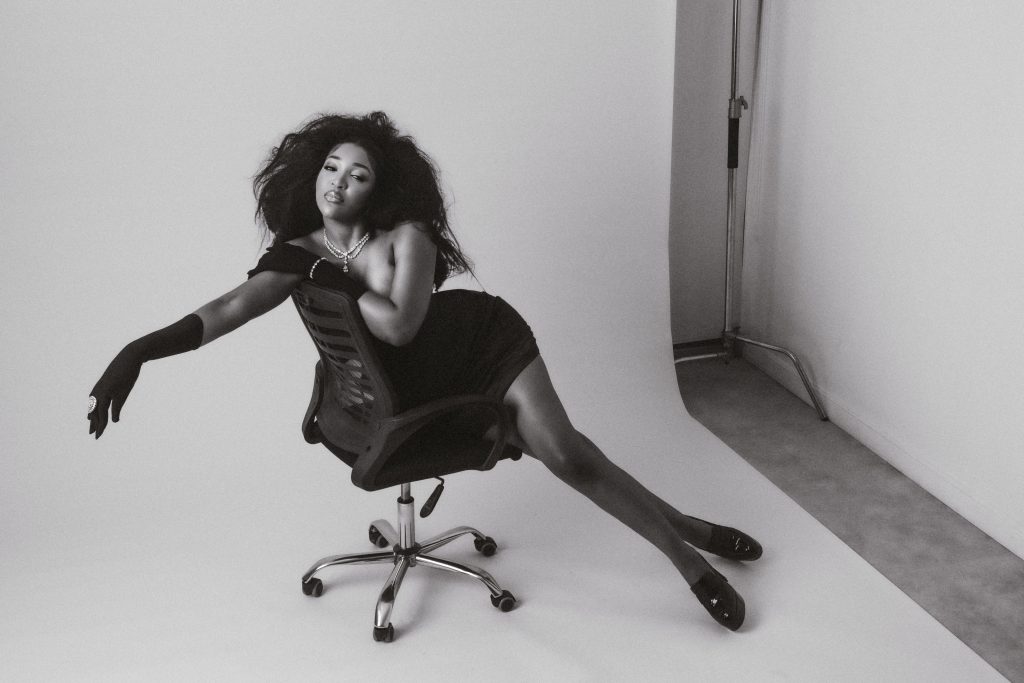
For many people abroad worried about relocating back home to Nigeria, what piece of advice would you give to them that helped you become successful thus far?
I think the main thing is just having a plan.
Too many people don’t have a plan, they just want to come, go with the flow. Have a plan, an endpoint, a vision, something you’re trying to achieve. The vision helps you highlight where you should be, what kind of company you should keep, where you should go, and the kind of jobs you should accept or apply to. For instance, in my case, we all know how well comedy is doing in Nigeria, right? But for me, because I know that with acting, the kind of actresses that I’ve always liked, they have range; they can be funny, but they wouldn’t necessarily do everything. I want to be the kind of actor that can do very physical roles that involve fighting but also very mental roles like depicting things that are important whether it’s drugs, cartels or immigration, stories that are important. It’s great to laugh and things like that but I want to be known for stories that are important and impactful, so that’s where I’m focused.
And I think just having that plan and vision helps you know what to accept or not. So they’ve given me roles where they are like “It starts with Idia in the shower.” That can never be me [laughs]. People should have a plan, don’t wing it. If you wing it, you are going to waste so much time. Even with a plan, I made those mistakes because I wasn’t focused.
Being focused has really helped me. Immediately I meet someone or have a business encounter, I just know that although it might be great, it’s not for me.
What would you like to be remembered for in the industry?
I want to be remembered as somebody that was disruptive. I was disruptive, I came out of nowhere but you couldn’t ignore. There’s a really big actor that said to me, “Idia, it’s been a long time since I saw somebody that really focused on the acting rather than just making people laugh or just being pretty. You don’t care whether you are fine when you are acting.” I want to be remembered as somebody that actually has techniques and delivers.
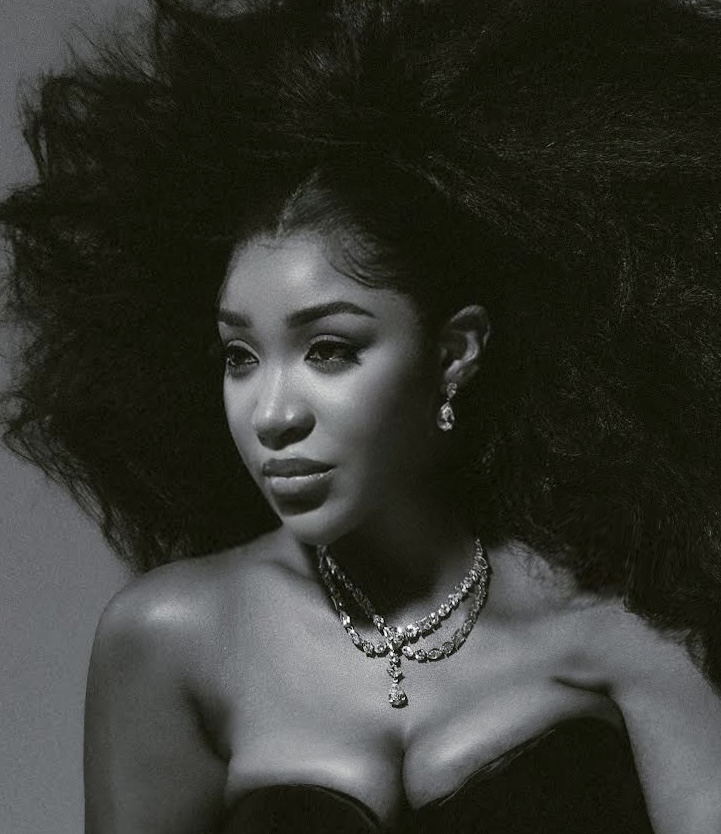
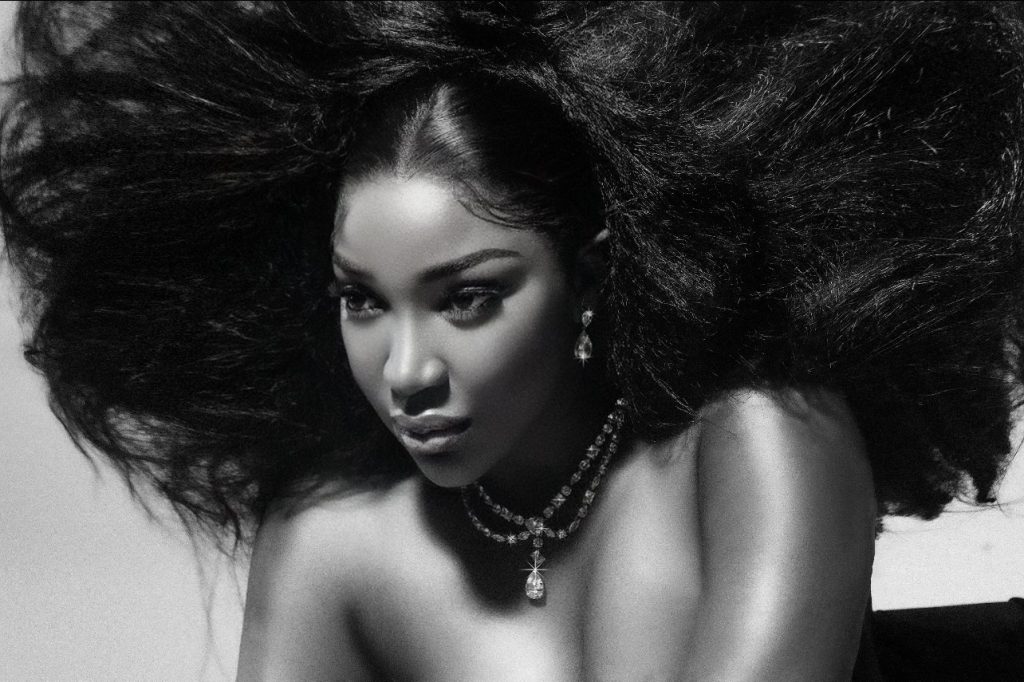
Self-identifies as a middle child between millennials and the gen Z, began writing as a 14 year-old. Born and raised in Lagos where he would go on to obtain a degree in the University of Lagos, he mainly draws inspiration from societal issues and the ills within. His "live and let live" mantra shapes his thought process as he writes about lifestyle from a place of empathy and emotional intelligence. When he is not writing, he is very invested in football and sociopolitical commentary on social media.



